[ad_1]
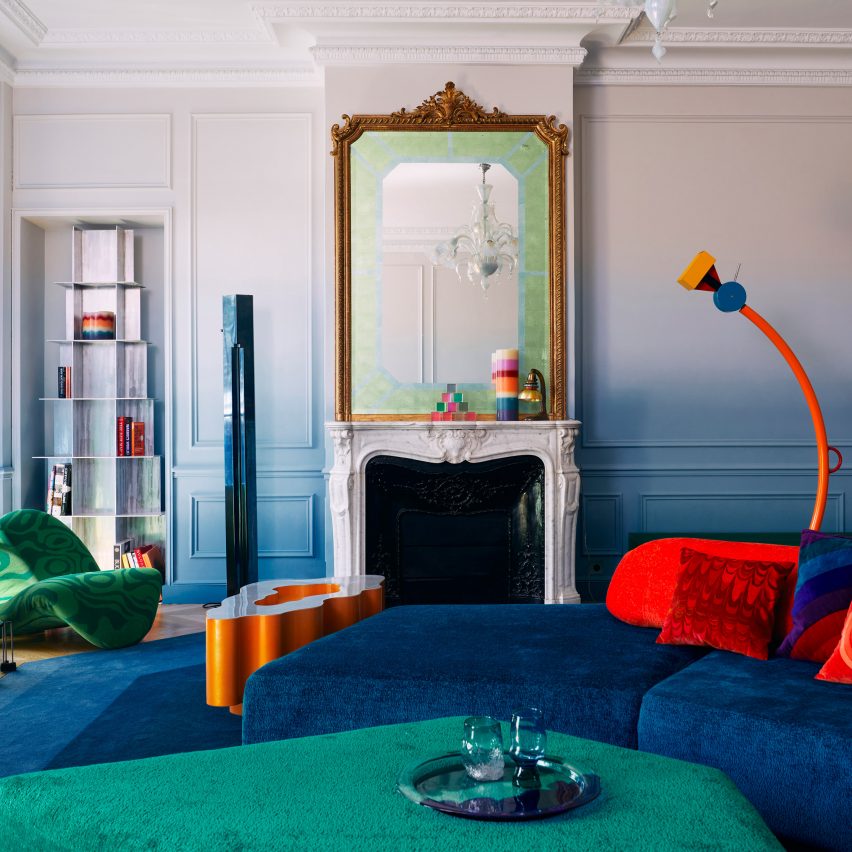
Multifaceted furniture pieces crafted to mirror the appearance of precious stones feature in this opulent Parisian apartment, which was renovated by local studio Uchronia for a pair of jewellery designers.
Located on Paris’s Avenue Montaigne, the one-storey apartment is housed within a building designed as part of Georges-Eugène Haussmann’s famed reconstruction of the French capital during the mid-19th century.
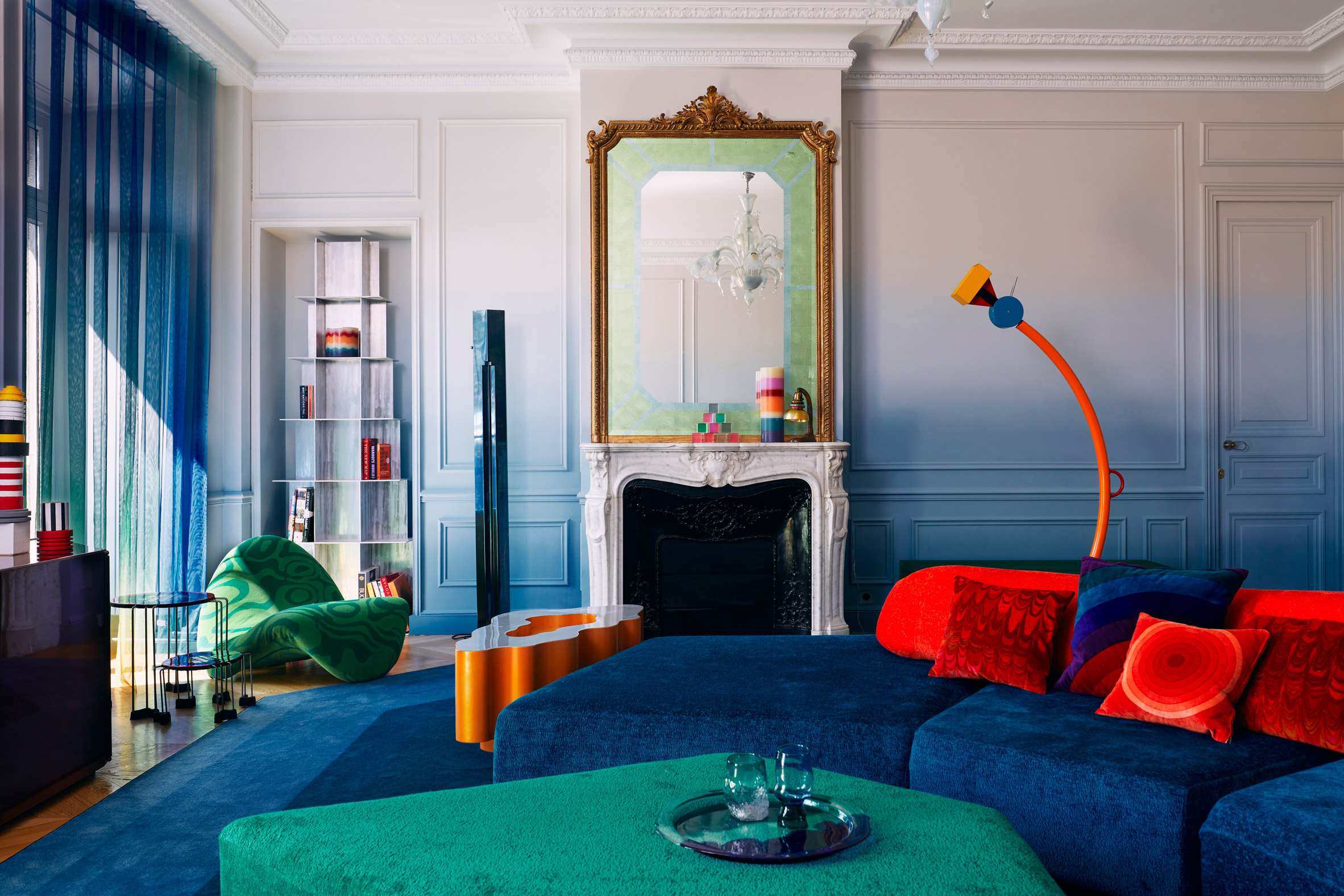
Uchronia maintained the apartment’s original boiserie, mouldings, parquet flooring and tall ceilings, which are hallmarks of Haussmann-era architecture.
This quintessentially Parisian backdrop was updated to include bright and textured furnishings designed to mimic pieces of jewellery.
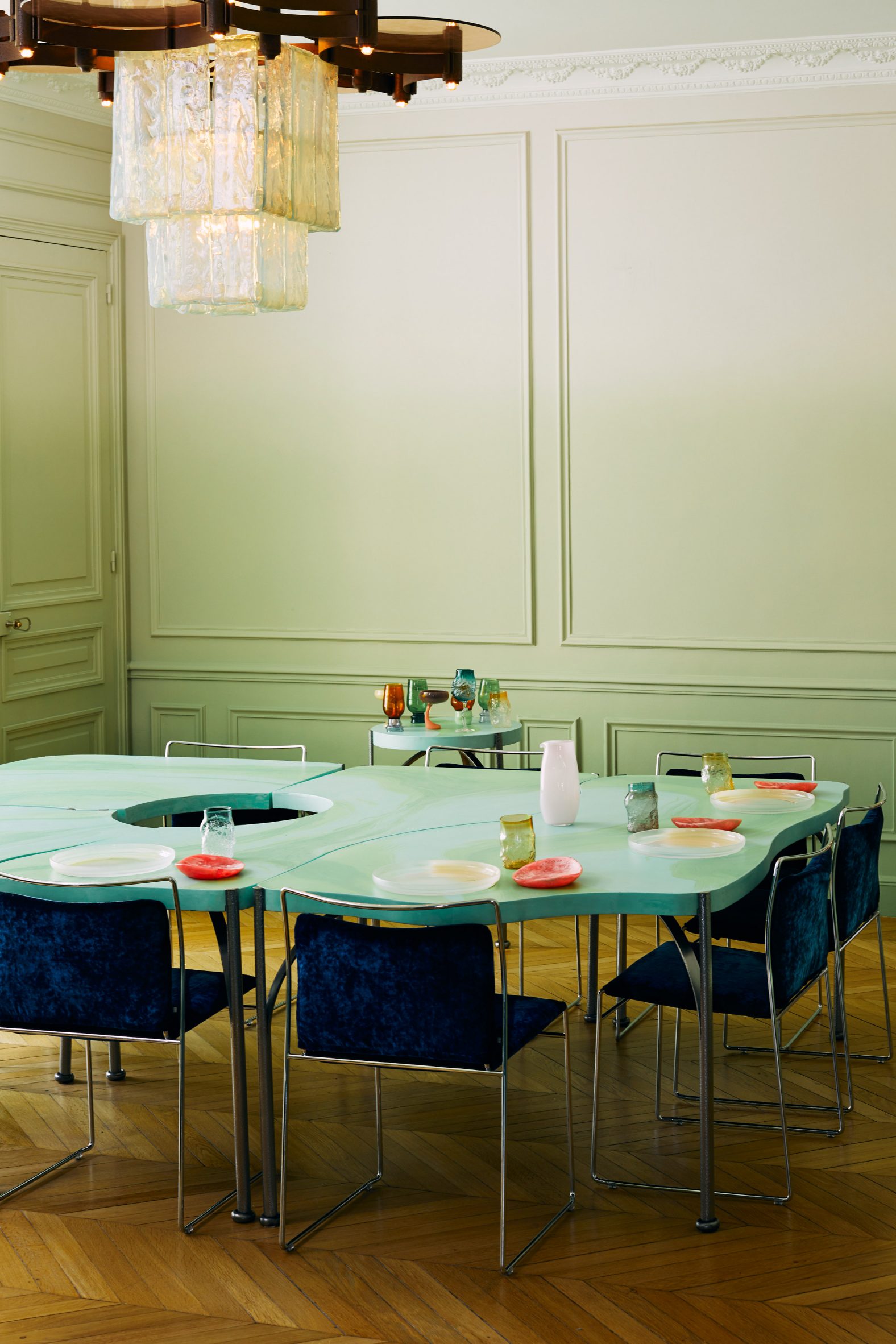
“The space had great bones – a classical Haussmanian layout,” said Uchronia founder and architect Julien Sebban. “That being said, it felt cold, pretentious and beige.”
“For a change, we avoided structural work and focussed on the decoration,” he told Dezeen.
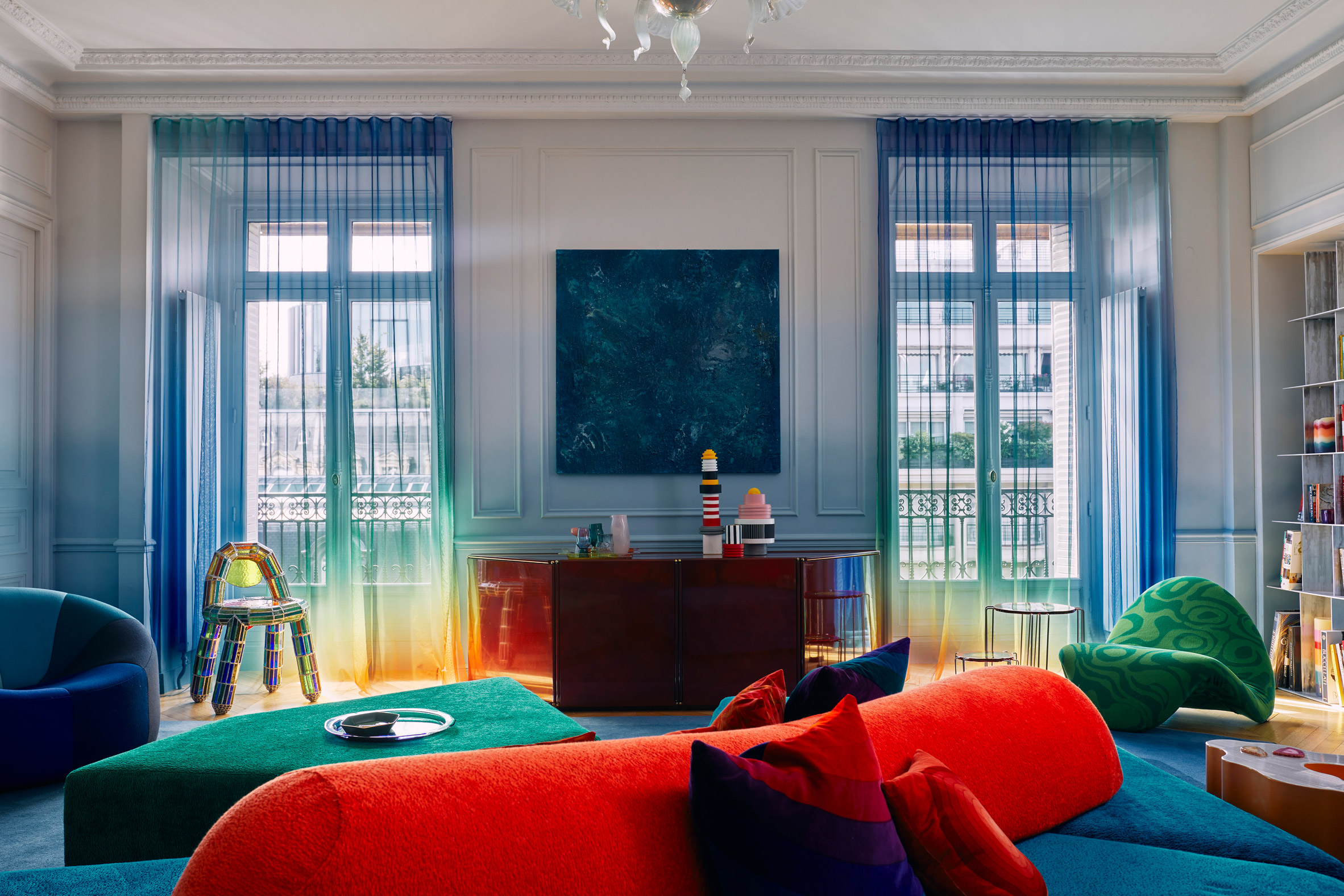
Created as a home for two jewellery designers, the apartment features an amorphous resin table in the dining room that is divided into seven modular parts and patterned with a motif informed by the green gemstone malachite.
“The table’s custom-designed, beaten steel legs echo the principle of claws holding a solitaire diamond to its ring,” explained Sebban.
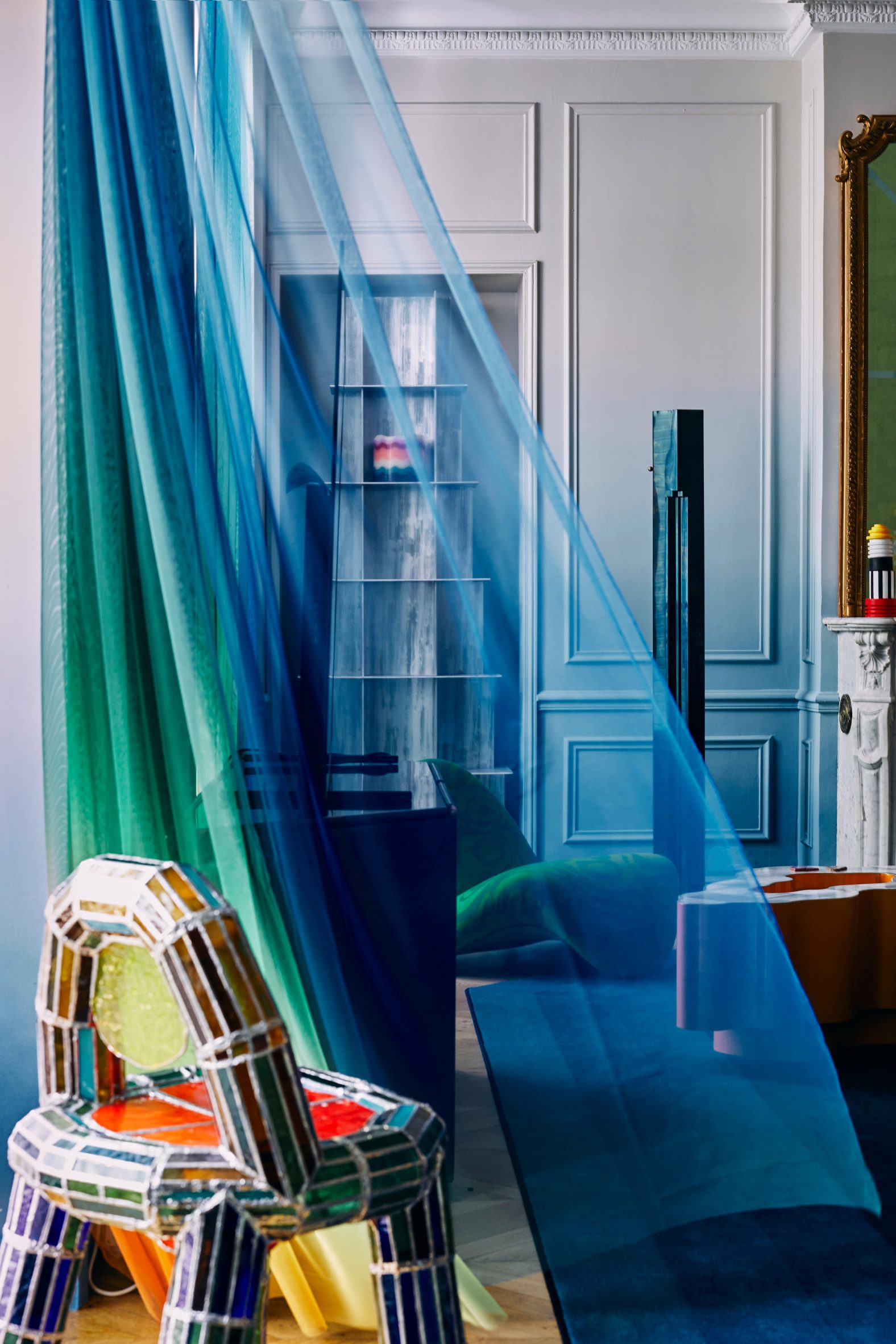
Multicoloured light refracts from a squat stained-glass chair in the sizeable living room, which features a trapezoid lacquered cabinet and curvy jewel-like furniture finished in vivid hues and contrasting textures.
Uchronia suspended a milky blue Murano glass chandelier overhead and wrapped the room’s floor-to-ceiling windows in sheer ombre curtains.
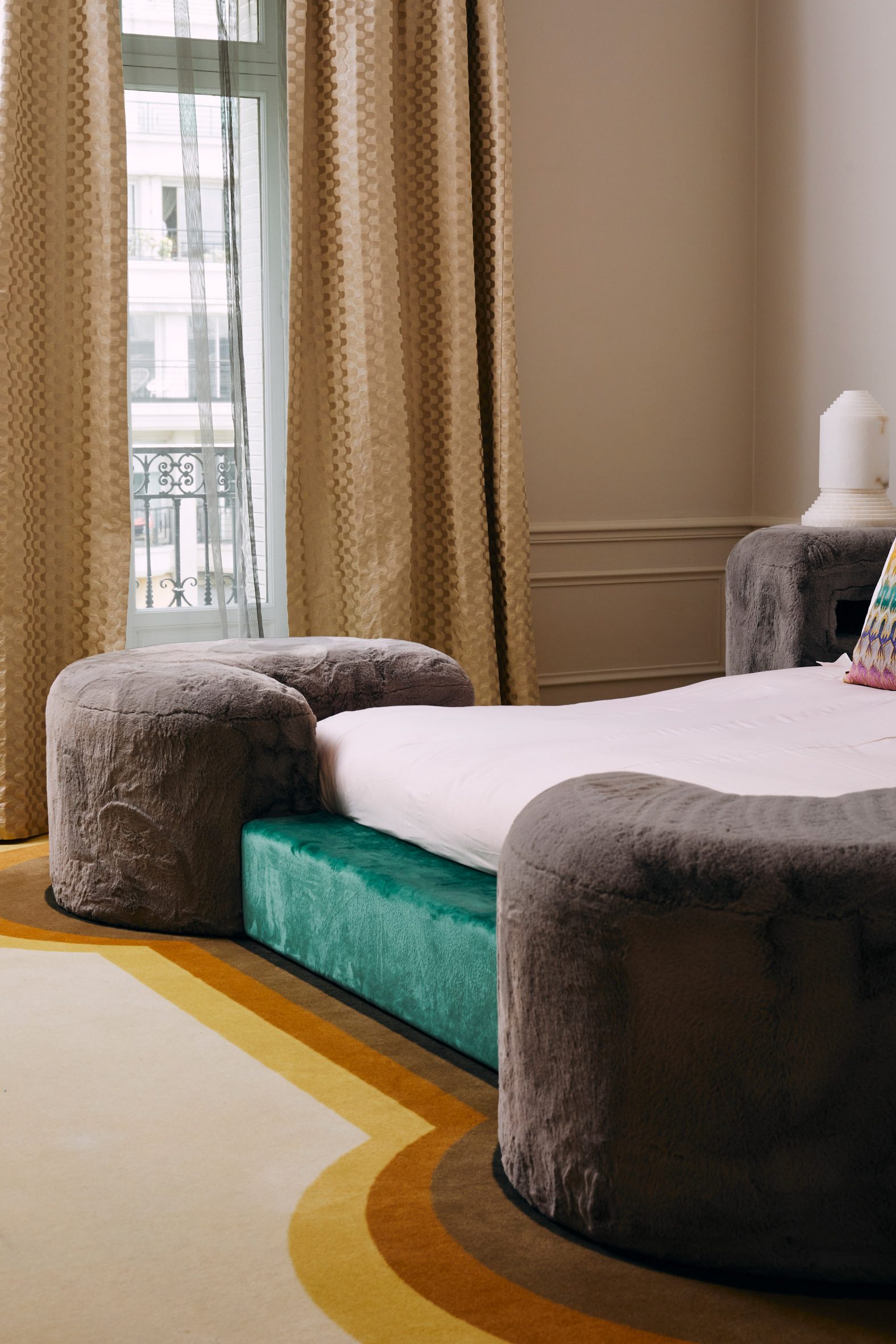
“The walls echo the curtains and are also treated – and this is a technical feat – in gradations of colour,” the architect said.
Tucked into an alcove, towering silvery shelves display a selection of ornaments and were designed to give the impression of an open jewellery box.
“If the apartment’s shapes are reminiscent of the jewellery world, its materials and colours are also borrowed from it,” Sebban said.
In the single bedroom, the studio took cues from the undulating striations of onyx when creating a bespoke bed frame, finished in plush upholstery to blend in with the room’s patterned carpet while alabaster lamps were positioned atop its two posts.
Elsewhere in the room, Uchronia paired a dramatically carved Ettore Sottsass dressing table in book-matched marquetry with an egg-shaped chair defined by gleaming red plastic and “space-age lines”.
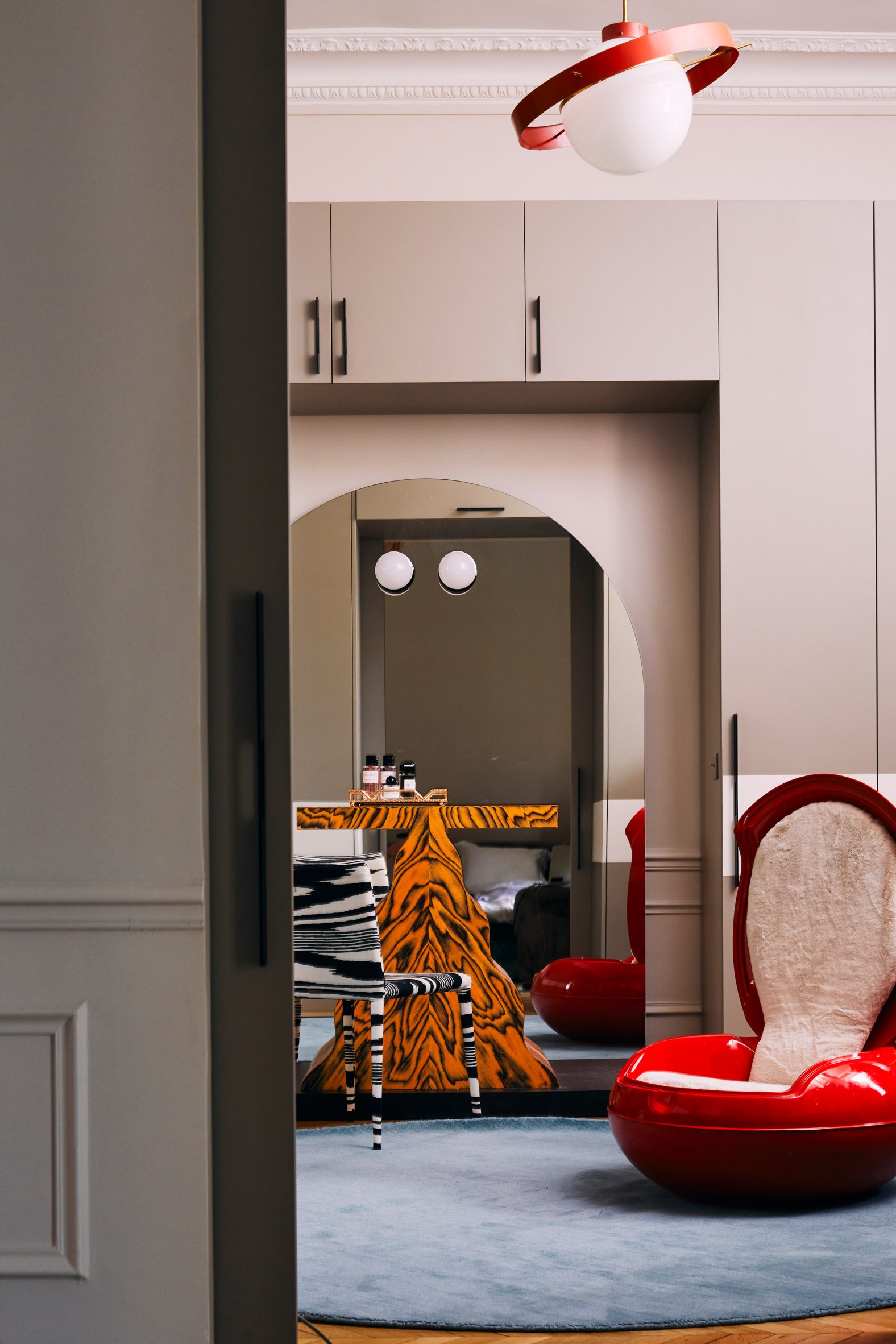
“It’s very hard to pick a favourite place in this flat because each space has its own identity and colour,” Sebban said. “But if there’s one thing I really love about this apartment, it’s the vitrail that leads to the kitchen.”
The curving window was an existing feature of the apartment, which the studio customised with candy-coloured glass panes.
“It creates a place of passage that is quite timeless, like a little sanctuary,” said the architect.
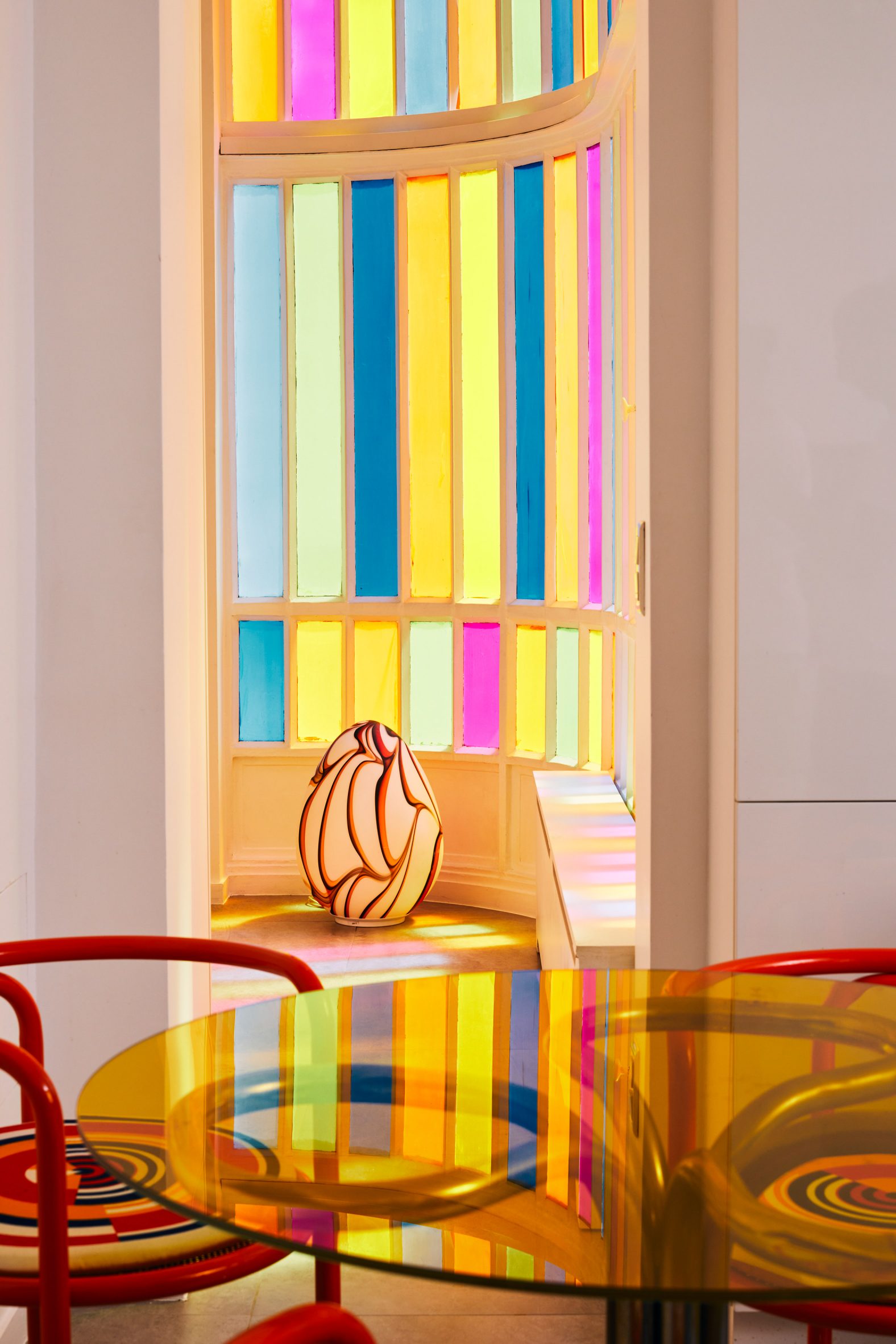
Coloured glass is a motif that appears throughout the apartment, including the asymmetrical pastel-hued wine and cocktail glasses that look like precious stones.
“Playful and contradicting combinations of colour, organic and geometric lines and a rich combination of textiles and glass come together to form a chromatic jewellery box filled with gems,” said Sebban. “Every detail has been thought out, polished and cut.”
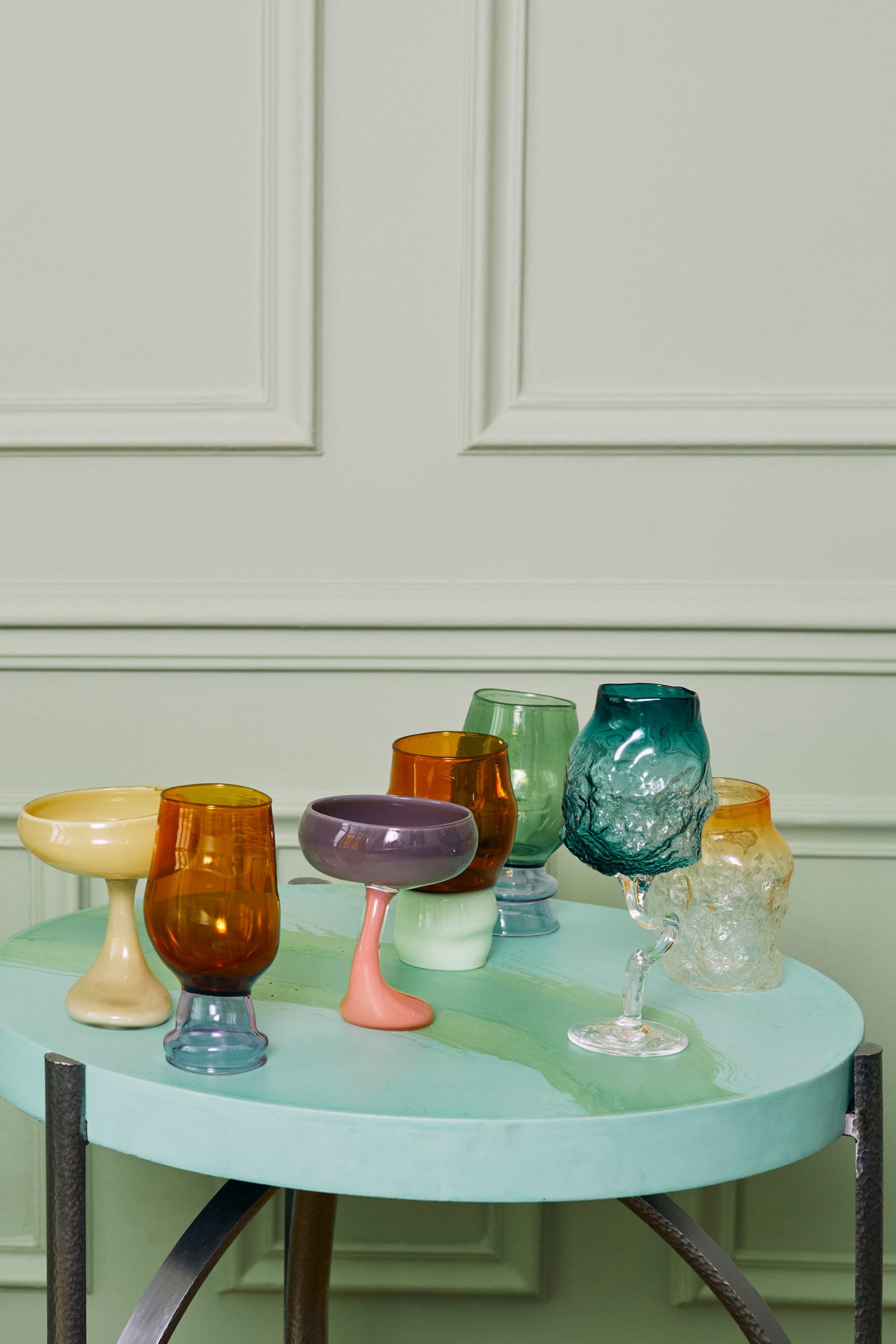
Elsewhere in Paris, French architect Sophie Dries previously renovated a Haussmann-era apartment for clients who are “really into colour”, while Hauvette & Madani added a sumptuous wine-red kitchen to a dwelling in the city’s République area.
The photography is by Félix Dol Maillot.
The post Uchronia conceives Haussmann-era Paris apartment as "chromatic jewellery box" appeared first on Dezeen.
[ad_2]
www.dezeen.com










